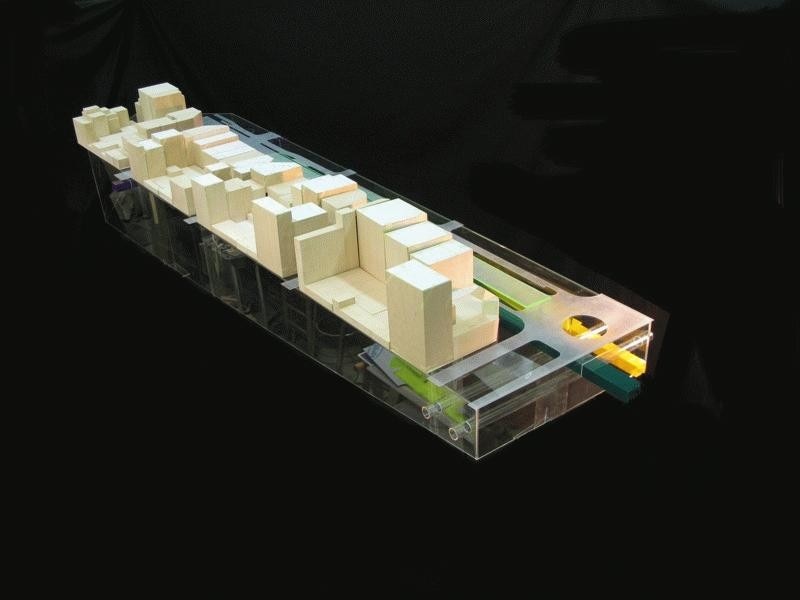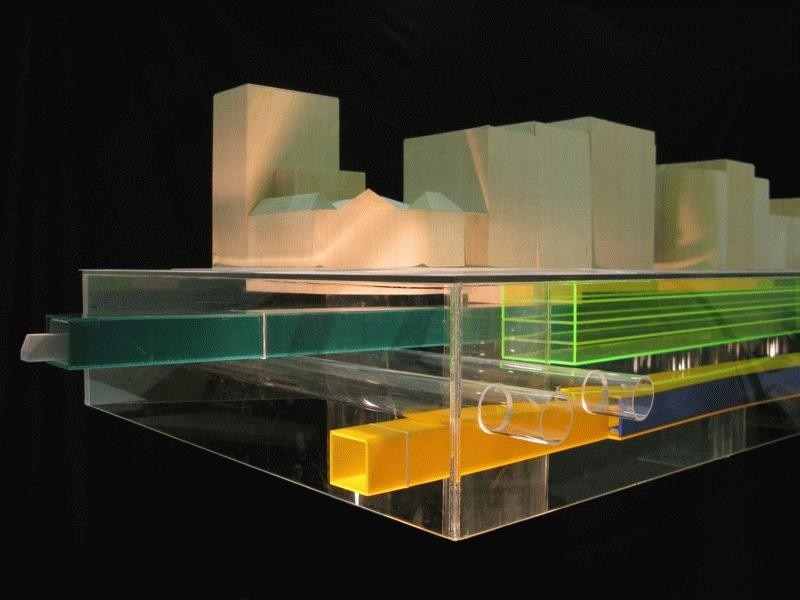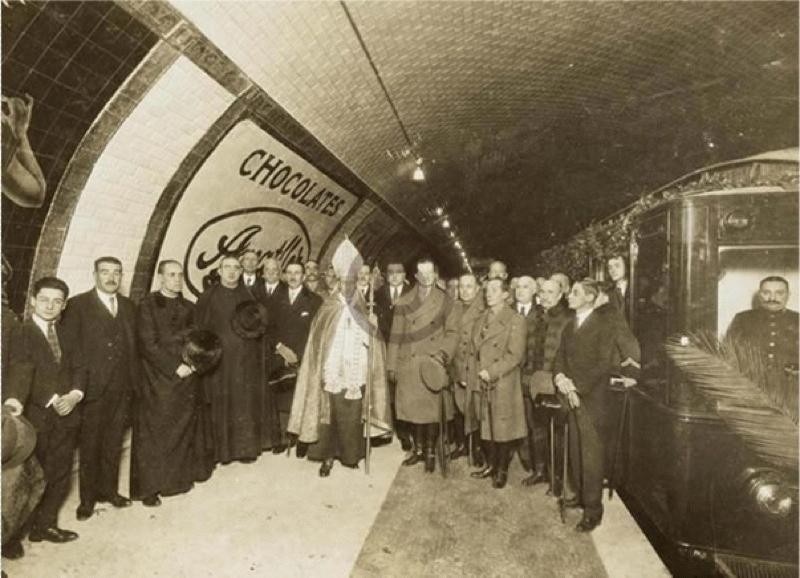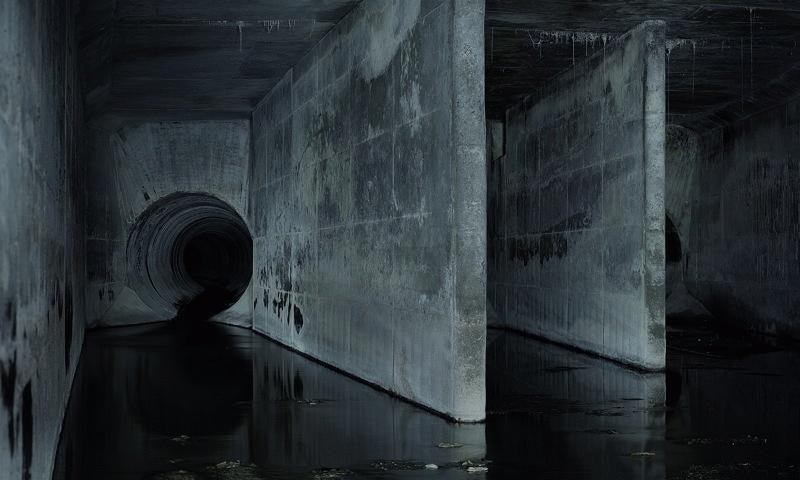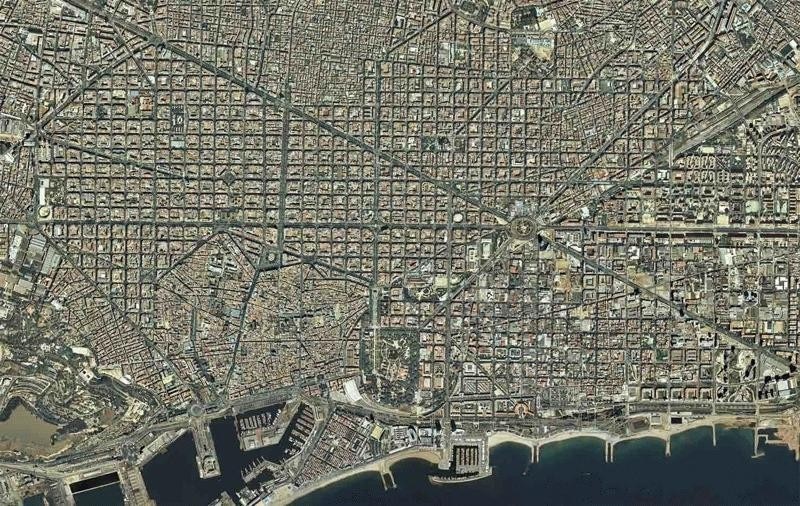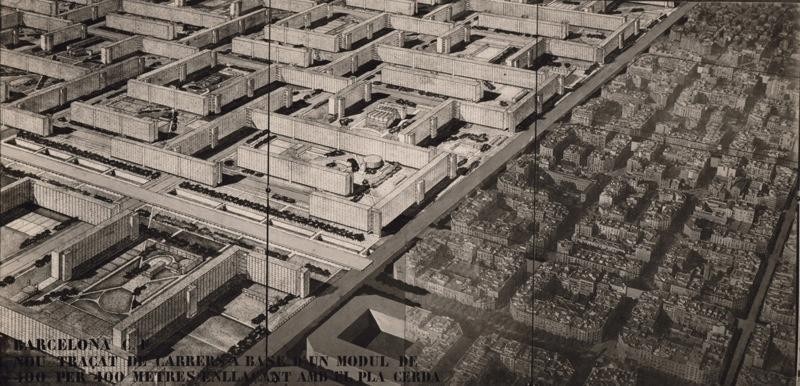The Eixample, or “city extension”, is the result of a strong, rational idea, the project by Ildefons Cerdà, which has been implemented over a 150-year period to produce a highly complex city that is rich in nuance. All great urban planning projects need time to develop, and the Eixample has been gradually modulated in the course of these years. This exhibition narrates the application and realization of Cerdà’s project over the last 150 years and the way in which its specific construction has given form to the present-day container and content of the Eixample and, accordingly, of the city of Barcelona.
Cerdà and the Barcelona of the Future immerses visitors into present-day reality to discover and interpret a series of forms of urban organization that have produced a compact, comfortable city, with an urban form that is highly appreciated. The show takes the pulse of the Eixample today, a district that is home to over 300,000 people and work place to more than 260,000, run through by Catalonia’s most complex transport and service network. The exhibition layout introduces us to the subterranean life of the Eixample and rediscovers its inner courtyards (many of which are still unknown), the most highly populated city blocks and the ones that host most economic activity. It represents a detailed examination of present-day reality.
More than 200 documents, including plans, models, installations, statistics, audiovisuals and even artistic manifestations (Joan Fontcuberta, Maria Rubert) help to give us a better understanding of the functioning of Barcelona’s Eixample and discover similar urbanistic models around the world, such as New York’s Manhattan, which has a comparable urban layout to that of the Eixample, with some surprisingly similar urban characteristics. However, an examination of the implementation of Cerdà’s Plan not only gives us keys for interpreting the present, it can also help us to envisage Barcelona’s future. The experience of the Eixample has to serve as a model for envisioning the territorial growth of Barcelona throughout its metropolitan area. The exhibition “Cerdà and the Barcelona of the Future. Reality vs. design” raises questions about this issue and also sets out to provide some answers.
